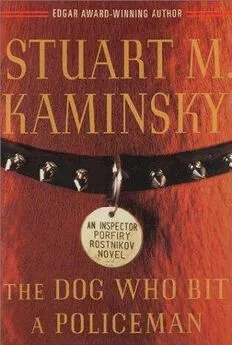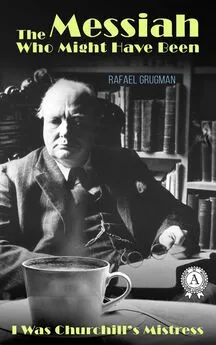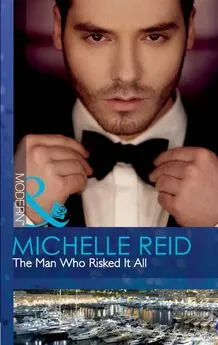Stuart Kaminsky - The Dog Who Bit a Policeman
- Название:The Dog Who Bit a Policeman
- Автор:
- Жанр:
- Издательство:неизвестно
- Год:неизвестен
- ISBN:нет данных
- Рейтинг:
- Избранное:Добавить в избранное
-
Отзывы:
-
Ваша оценка:
Stuart Kaminsky - The Dog Who Bit a Policeman краткое содержание
The Dog Who Bit a Policeman - читать онлайн бесплатно полную версию (весь текст целиком)
Интервал:
Закладка:
Rostnikov, from the time he was a boy, had been an avid lifter of weights. He kept a set of barbells and a bench at home and from time to time entered park and district competitions, which he invariably won. Now that he was placed in the senior bracket of such competition, he won even more regularly and thus competed less.
“How did you get here, huh?” asked Rostnikov.
“Well, my father. .”
“No, Igor. I was talking to our floating friend.”
“He is dead,” said the young officer.
“If not, we are witnessing a miracle,” said Rostnikov. “I was told once by a Inuit shaman in Siberia that it is a comfort to the souls of the dead to talk to them before they are taken by the spirits.”
“You believe that?” asked Druzhnin. “I’m sorry. It’s not my business to question. .”
“No, that is fine,” said Rostnikov, taking another sip of the coffee. “I don’t believe either, but I find it helpful to speak to the dead even if they do not answer. If the Hindus are correct, our floating friend has already been reincarnated, perhaps as a very small ant in a forest where he will not know he had once been human and might never, in his life as an ant, see a human being.”
“Perhaps,” said Druzhnin, adjusting his cap and trying not to look directly at the chief inspector, who seemed, to give him the benefit of the doubt, a bit odd.
A group of four men was coming down the embankment not far from the boat.
“Forensics,” one of the men called to Rostnikov.
“I know,” said Rostnikov.
“We’ll pull in the body,” the man on the shore said. “Can you give us a hand?”
“No,” said Rostnikov. “It stays where it is.”
The man onshore, who was no more than forty, looked at his colleagues, one of whom said something Rostnikov could not hear.
Then the man spoke again. “We have to do our job,” the man said.
“My name is Penzurov. We have met before.”
“I recognize you.”
“Porfiry Petrovich, we have to do our job,” Penzurov repeated.
“No, you do not,” said Rostnikov. “The job must be done. But you do not have to be the ones who do it. Would you like to come aboard and have some coffee?”
“We were sent to retrieve and examine the body,” Penzurov said in confusion.
“Then return to whoever sent you and inform them that Inspector Rostnikov of the Office of Special Investigation told you that your outstanding services would not be required.”
“Why?” asked the man.
“Because,” said Rostnikov. “And I mean no offense, you have a less than outstanding record of examination of bodies, crime scenes, and collected evidence. The responsibility is mine. Technician Paulinin of Petrovka will conduct the examination of the body.”
The four men conferred. Rostnikov sipped his coffee and looked across the river at the massive Hotel Baltschug Kempinski towering over the smaller, ancient decaying buildings and churches.
“I believe we have jurisdiction,” said the man as firmly as he could.
“I believe you do not,” said Rostnikov. “Do not try to pull the corpse in or I shall come ashore in a black mood and be forced to embarrass you into departure.”
“We shall report this immediately,” said the man.
“That is a very good idea,” said Rostnikov.
The four men made their way back up the embankment. One of the men, the oldest, slid and slipped on the dewy grass of late spring. No one helped him up. He scrambled to the top of the in-cline and looked down at his dirty hands before joining the others.
Rostnikov handed his empty mug to Officer Druzhnin, who said, “Would you like more?”
“No, thank you,” said Rostnikov.
The officer nodded and headed for the door to the cabin, the two mugs clinking together as he moved.
Rostnikov turned awkwardly to the bobbing corpse and said,
“What are you doing here? What happened to your clothes? Who are you?”
A small undulation raised the body slightly.
“Well, I’m sure you’ll talk to Paulinin,” said Rostnikov. “I’m comfortable talking to the dead, but he gets answers. Let us both be patient. It’s not a bad day. The sky is clear. There is a breeze and the river doesn’t smell as bad as it often does lately.”
Now two men appeared at the top of the embankment. Rostnikov turned again, giving his artificial leg a hitch.
The two men who stood looking down at the inspector and the floating corpse were an incongruous pair. One was tall, very pale, and dressed completely in black-shoes, socks, slacks, turtleneck sweater, and jacket. His dark, receding hair was brushed straight back. Rostnikov looked at Detective Emil Karpo who returned the look without emotion. Karpo was known as “the Vampire” or “the Tatar” by criminals and law-enforcement officers. Karpo had been a completely dedicated Communist who had not overlooked the political system’s many shortcomings but who believed that eventually the system would succeed. It was not Communism that was the problem but the men who seemed determined to corrupt it.
The sudden transition from corrupt Communism to corrupt democracy had been difficult for Karpo, but he had been helped through the change by Mathilde Verson, a redheaded part-time prostitute who had grown quite close to him. And then Mathilde had been killed in the crossfire between two Mafias. Karpo had survived by throwing himself into his work even more than was usual. In fact, Emil Karpo spent all of his waking hours relentlessly pursuing criminals from both the past and the present. Karpo’s small room was dominated by shelves filled with notebooks on past unsolved and solved crimes. The rest of the space in which he lived was little more than a cell, with a small dresser, cot, and closet.
Since he spent little, Karpo had money to buy the computer that sat on the desk in his room. The computer was devoted to storing Emil Karpo’s vast files and running cross-checks which might link anyone to any crime.
The man at his side, Paulinin, was shorter, disheveled, clad in a stained white laboratory coat, and decidedly uncomfortable. He seemed to be talking to himself.
Rostnikov waved for the two men to come down and join him.
Officer Druzhnin appeared on deck, looked at Rostnikov, who nodded, and let down a plank for the two men to board the small boat.
“Thank you for coming,” said Rostnikov to Paulinin. “I’m sorry to bring you out so early, but you are the only one I trust to give me a meaningful report about our floating friend.”
Paulinin grunted, adjusted his glasses, and stood at the rear of the boat next to Rostnikov, looking down at the dead man. Behind Paulinin, Karpo said, “He’s a member of the Tatar Mafia. The tattoo is theirs.”
“A start,” said Rostnikov. “Paulinin?”
“By the condition of the corpse, I would say he has been in the water less than a day, perhaps much less. My guess? He died last night. But. .”
Paulinin looked around, found a grappling pole, and awkwardly but carefully nudged the corpse toward the boat. He used the flat side of the pole to keep from damaging the bloating corpse.
“Hold this,” Paulinin said, handing the pole to Karpo, who took it and firmly pulled the body closer to the boat.
“We must turn him over,” said Paulinin.
“Officer Druzhnin, please,” said Rostnikov.
The young officer climbed over the rear railing, feet on a narrow platform near the water level and one hand on the railing. He reached down and tried to turn the naked corpse over on its back, but the man was too heavy and slippery. Karpo moved forward and joined the young officer. Together, they managed to turn the corpse. Druzhnin held the body awkwardly to keep it from turning facedown again.
Paulinin looked down at the corpse.
The dead man was thick necked and had a well-trimmed short beard. A dark hole burrowed into his forehead just above the bridge of his nose. He also had three dark spots in his hairy chest and stomach.
“Pull him up here, carefully,” said Paulinin.
Karpo and the young police officer tried to lift the waterlogged dead man into the boat.
“Careful,” said Paulinin. “No new bruises or cuts.”
The dead man easily weighed two hundred fifty pounds.
Rostnikov rose, turned, knelt on the wooden bench, and reached down for the dead man’s arm. The arm was cold and the flesh soft.
Rostnikov motioned for the police officer and Karpo to back away as he lifted the body. Rostnikov managed to grab the dead man under each arm. He took a deep breath and lifted the naked corpse from the water.
“Take his feet,” Rostnikov said.
Karpo and Druzhnin reached down for the corpse’s legs.
The three men lifted the dead man over the side of the boat and placed him, faceup, on the deck.
Paulinin knelt next to the dead man and leaned over to examine him.
Rostnikov knew better than to ask the scientist any questions.
He simply watched and waited.
“Yes,” said Paulinin, touching the man’s chest. “He is talking to me already. He will tell me much more in my laboratory. Porfiry Petrovich, I don’t see why I had to come here. I have work piling up back home.”
“I thought you might see something here that I have not seen,”
said Rostnikov, who was using a small soiled towel Druzhnin had handed him to wipe away some of the touch of death.
Paulinin sighed and adjusted his glasses. “I suggest you search the opposite shore,” he said. “An elusive combination of wake, flow, and current. I think the body came from over there.”
Rostnikov looked at where Paulinin was pointing.
“That is providing I am correct about the approximate time of death. I’ll be more specific later. Now, bring the corpse to my laboratory.”
“I’ll take care of it,” said Karpo.
Chapter Two
As Porfiry Petrovich Rostnikov talked to the nude, bloated corpse, Sasha Tkach woke to summer sunlight streaming through the window of his hotel room. The sun was painful and so was the construction noise outside, which was barely muted by the closed windows. Sasha had a hangover from the night before.
“Get up,” Elena said. She wore a blue dress with red stripes running down at an angle.
Sasha tried twice to sit up before he succeeded. Elena handed him a cup of coffee, which he took gratefully. He vaguely remembered coming back to the room and throwing his clothes on the floor till he was down to his undershorts. Elena, who had slept on the pull-out bed in the living room of the suite, had watched Sasha weave into the room at four in the morning. She had taken a look at him and realized that there would be no point in asking him any questions. And so he had barely made it to the bed, where he collapsed, felt a wave of nausea and dizziness, and was almost instantly asleep.
Now Elena stood over him, waiting as patiently as she could and drinking her own coffee.
Sasha needed a shave, and the hair he had slicked back the night before was a wild mess. There were circles of darkness under his red eyes and, all in all, he looked terrible.
“Tell me what happened,” Elena said. “I’ll write the report.”
“Thank you,” Sasha said, finishing his coffee. It helped his head a bit but gave him a slight taste of nausea.
Elena sat in a soft armchair near the window, put down her cup, and took a small tape recorder from her pocket. She placed the recorder on the table near her armchair and waited for Sasha to speak. Had he been thinking less of his head and of the events of the morning, Sasha might have noted that Elena wore a look of irritation that contained no sympathy for her partner.
Читать дальшеИнтервал:
Закладка:










